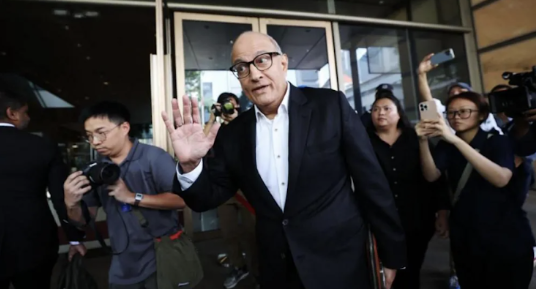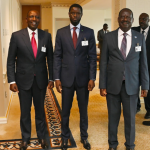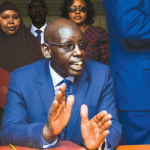Singapore’s former transport minister, Subramaniam Iswaran, has been convicted of receiving gifts while in office after pleading guilty in a local court. At the start of his trial on Tuesday, prosecutors amended the initial corruption charges against him.
Corruption cases involving public officials are rare in Singapore, a financial hub known for its clean governance, making Iswaran’s case particularly notable. He now faces potential fines or up to two years in prison for each charge of receiving gifts or gratifications, as opposed to a corruption conviction, which could lead to a fine of up to S$100,000 (approximately $75,000) or up to seven years in prison.
Iswaran is the first political office-holder in Singapore to face trial in the past 50 years. He gained recognition for bringing the Formula 1 Grand Prix to the country, with the latest event concluding just days before his court appearance. Court documents revealed that he received gifts valued at over S$403,000 (around $311,882) in the form of flights, hotel stays, musicals, and grand prix tickets.
Following the charges issued in January, Iswaran initially pleaded not guilty and resigned from his government position, focusing on clearing his name. Property tycoon Ong Beng Seng was identified in the charges as a key figure, allegedly offering the gifts. Ong owns the rights to the Singapore Grand Prix, while Iswaran served as an advisor to its steering committee.
Although Ong was arrested alongside Iswaran last year, he has not been charged with any offenses and was initially expected to testify as a prosecution witness.
In March of this year, Iswaran received eight additional charges related to items obtained from construction company executive Lum Kok Seng, which included a Brompton bicycle, golf clubs, and whisky.
Mr. Lum’s company is engaged in several government infrastructure projects across Singapore, awarded during Iswaran’s tenure as Transport Minister. He himself has not faced any charges.
Throughout his time in government, Iswaran held multiple roles within the prime minister’s office, including in home affairs, communications, and most recently, transport. However, he gained significant recognition during his lengthy tenure in the trade and industry ministry, where he played a pivotal role in shaping Singapore’s tourism landscape in the late 2000s and 2010s.
During this period, the government invested heavily and attracted billions in foreign investments to develop casinos, hotels, tourist attractions, and events like the F1 Grand Prix. Iswaran was often seen on stage, presenting trophies to drivers amid celebratory champagne sprays.
The case against Iswaran is part of a series of political scandals that have affected the ruling People’s Action Party (PAP), which has long promoted its strong anti-corruption stance. In 2023, the government faced a separate corruption investigation involving two other ministers, who were ultimately cleared of any wrongdoing, as well as the resignation of two lawmakers over an extramarital affair.
Singapore’s lawmakers are among the highest-paid globally, with some ministers earning over S$1 million (approximately $758,000). Leaders justify these substantial salaries by arguing that they help combat corruption.
Prior to last year, the most recent major corruption case involving a politician dates back to 1986 when national development minister Teh Cheang Wan was investigated for accepting bribes. He took his own life before any charges were filed. Before that, former minister of state for the environment, Wee Toon Boon, was sentenced to 18 months in jail in 1975 for involvement in a case exceeding $800,000.



